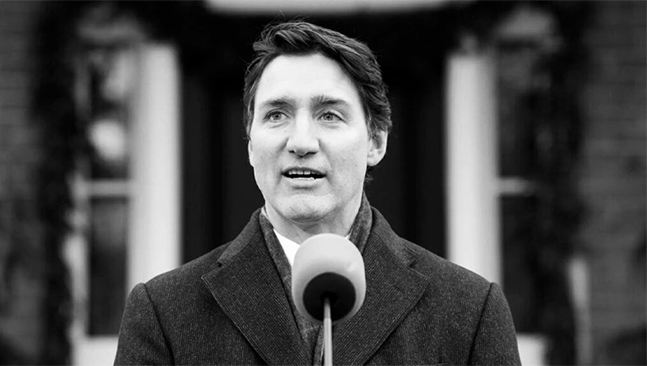by the El Reportero‘s staff
The potential resignation of Canadian Prime Minister Justin Trudeau could mark a pivotal moment in the nation’s political landscape. For the Conservative Party, this transition offers both a challenge and an opportunity to reassert its relevance and potentially reshape the future of Canada. As the Liberal Party navigates the aftermath of losing a high-profile leader, questions arise about whether the Conservatives can seize this moment to gain prominence and lead the country.
Liberal instability and the conservative advantage
Leadership transitions often bring uncertainty, and Trudeau’s departure would undoubtedly create a leadership vacuum within the Liberal Party. For over a decade, Trudeau has been the face of Canadian liberalism, championing progressive policies on climate change, gender equality, and inclusivity. Without him, the Liberal Party faces the dual challenge of finding a new leader and maintaining a coherent vision that resonates with Canadians.
Such instability could play into the hands of the Conservative Party. Historically, political opposition thrives during periods of uncertainty, as voters seek stability and clear alternatives. A divided Liberal Party—particularly if its leadership contest exposes ideological differences—could provide an opening for the Conservatives to position themselves as a unified and dependable force.
Economic frustrations as a rallying point
Canada, like many countries, faces economic challenges, including inflation, housing affordability, and concerns over energy policy. These issues have drawn criticism of Trudeau’s government, with some voters expressing dissatisfaction over perceived shortcomings in addressing these pressing concerns. The Conservative Party, under the leadership of Pierre Poilievre, has consistently emphasized economic issues, advocating for affordability, lower taxes, and reduced government intervention.
If Trudeau resigns, the Conservatives could amplify their message, portraying themselves as the party best equipped to handle economic recovery. By focusing on voter concerns and offering pragmatic solutions, they may attract not only their traditional base but also centrists who feel disillusioned with Liberal policies.
Opportunities and risks for the left
While the Liberal Party’s challenges could benefit the Conservatives, they also open opportunities for Canada’s other major left-leaning party, the New Democratic Party (NDP). Led by Jagmeet Singh, the NDP has positioned itself as a progressive alternative to the Liberals, advocating for wealth redistribution, universal pharmacare, and aggressive climate action.
However, the left risks fragmentation. If the NDP siphons votes from the Liberals without significantly increasing its own seat count, the Conservatives could consolidate their position and emerge as the primary beneficiary. This dynamic underscores the importance of strategic decision-making within both the Liberal Party and the broader progressive movement.
Conservative messaging and challenges
For the Conservatives, this moment is not without its challenges. To capitalize on Trudeau’s resignation, the party must present a vision that appeals to a broad and diverse electorate. While their focus on economic issues has resonated with many, they will need to address other critical concerns, including healthcare, climate change, and reconciliation with Indigenous communities.
Additionally, the party must navigate its own internal dynamics. In recent years, some factions within the Conservative Party have pushed for more populist policies, while others advocate for a return to traditional conservatism. Ensuring a cohesive platform that unites these factions without alienating moderate voters will be essential for their success.
A shift in global perceptions
Trudeau’s leadership has positioned Canada as a global leader in progressive values. His departure could signal a shift in Canada’s international role, particularly if the Conservatives take power. Policies on climate change, energy, and foreign relations might shift, aligning Canada more closely with conservative-led nations emphasizing economic growth and resource development.
For Canada’s allies and trading partners, such changes would reflect the evolving priorities of Canadian voters. Domestically, they could spark debates about the balance between economic prosperity and environmental stewardship, further shaping the country’s political discourse.
The road ahead
As the Liberal Party navigates the prospect of a post-Trudeau era, the Conservative Party stands at a crossroads. The opportunity to advance their movement is clear, but it requires strategic leadership, effective messaging, and an understanding of the evolving priorities of Canadian voters. Meanwhile, the broader political landscape—including the role of the NDP and the response of civil society—will play a crucial role in determining whether the Conservatives’ moment can translate into lasting success.
In the end, Trudeau’s potential resignation is not just a turning point for the Liberal Party but for Canada as a whole. It offers an opportunity for political renewal, reflection, and realignment. Whether the Conservatives can rise to the occasion remains to be seen, but their actions in the coming months will undoubtedly shape the next chapter of Canada’s political story.



